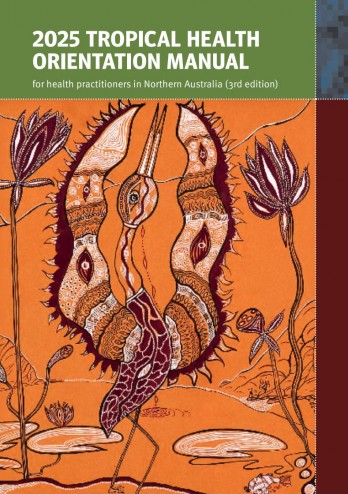
 Tropical Health Orientation Manual for Health Practitioners in Northern Australia, 3e
by
This third edition of the THOM is supported by the Northern Territory Primary Health Network (NT PHN) and published by the Menzies School of Health Research. As with the prior editions, there are many clinical colleagues who have generously given their own time to update topics and provide new content. Emphasis has been placed on adding direct links to relevant guidelines and resources, especially CARPA, Therapeutic Guidelines and NT HealthPathways. The THOM provides best practice advice for the diagnosis, identification and treatment of conditions specific to the tropical north. It is a helpful resource for health practitioners working in northern Australia, especially those new to the region and those who visit periodically to support the local health workforce.
Tropical Health Orientation Manual for Health Practitioners in Northern Australia, 3e
by
This third edition of the THOM is supported by the Northern Territory Primary Health Network (NT PHN) and published by the Menzies School of Health Research. As with the prior editions, there are many clinical colleagues who have generously given their own time to update topics and provide new content. Emphasis has been placed on adding direct links to relevant guidelines and resources, especially CARPA, Therapeutic Guidelines and NT HealthPathways. The THOM provides best practice advice for the diagnosis, identification and treatment of conditions specific to the tropical north. It is a helpful resource for health practitioners working in northern Australia, especially those new to the region and those who visit periodically to support the local health workforce.
 Got big ideas for this ANZCA resource guide? Why not become our advocate? Highlight valuable resources for college fellows and trainees while earning CPD hours!
Got big ideas for this ANZCA resource guide? Why not become our advocate? Highlight valuable resources for college fellows and trainees while earning CPD hours!
 Contact ANZCA Library for more info: library@anzca.edu.au
Contact ANZCA Library for more info: library@anzca.edu.au

Quick links
About ANZCA
Copyright © Australian and New Zealand College of Anaesthetists.